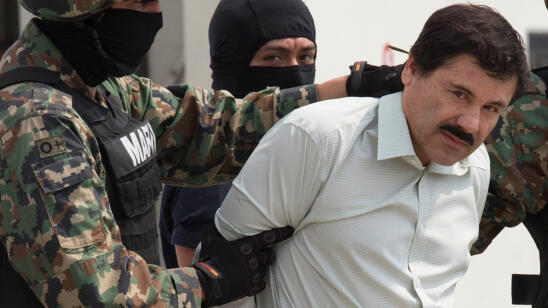Even amidst a crackdown on doctors who overprescribed painkillers and fueled the opioid epidemic, Dr. Paul Volkman’s sentence stands out.
On February 14, 2012, a federal judge in Ohio gave the 64-year-old Volkman four consecutive life sentences for four convictions of unlawful distribution of a controlled substance resulting in death. The judge also sentenced Volkman for 13 other counts, including illegally prescribing and dispensing pain pills, operating drug premises, conspiracy to distribute a controlled substance and possession of a gun in furtherance of drug trafficking. Those additional convictions carried sentences of 10 to 20 years each.
These convictions stemmed from Volkman’s work at different pill mills—the name given to clinics and doctors’ offices illegitimately prescribing huge amounts of opiates—between April 2003 and February 2006. For three years, Volkman made a weekly commute from Chicago to Ohio towns that were close to Kentucky and West Virginia. He wrote scripts—often combining opiates, muscle relaxants and tranquilizers—that sometimes added up to more than 600 pills per month for a single patient. Volkman’s clinics made millions, even as local pharmacies refused to fill his prescriptions and some patients died from overdoses.
In Prescription for Pain: How a Once-Promising Doctor Became the ‘Pill Mill Killer,’ reporter Philip Eil delves into Volkman’s story. He speaks to A&E True Crime about how a man with a medical degree and doctorate from the University of Chicago, who spent three decades as a pediatrician and emergency room physician, wound up with a life sentence.
How did you initially get interested in Paul Volkman’s case?
For a period of 10 years, from 1964 to 1974, first at college and then at medical school, Paul Volkman and my dad were on these closely parallel tracks in their education. They went to the same college and the same M.D.-Ph.D program. My dad has had a successful career in medicine. Paul is in federal prison for the rest of his life.
I wanted to know, how two guys who were on such similar paths at one point in life could wind up in such different places?
You interviewed Volkman while working on this book. What was he like?
He still claims that he was a good doctor, that he was helping people, that he’s innocent. I’m not sure he will ever give that up.
I [first] met [Volkman] in 2009, at the start of my reporting. [He] turned out to be such an unreliable narrator… I wanted to enlist as many people to help me fact check his story as I could.
[Stream episodes of Intervention in the A&E app.]
I did talk to a number of people, including family members, who could help flesh out the portrait of this guy. I read through [his] trial transcript that was more than 4,000 pages. And I [was] able to speak to a number of family members of Volkman patients who passed away and folks in the area where [his crimes] took place.
After multiple instances of medical malpractice, Volkman was no longer able to obtain malpractice insurance. Were pill mills his only option to work as a doctor?
From what I understand, his ability to practice medicine in just about any setting was severely limited by his lack of malpractice insurance. [In the malpractice cases] there was a real pattern of Volkman doing things that left people severely injured. In one case, a child died.
What he doesn’t really acknowledge in his own account is he had a pretty expensive lifestyle. He was living in a very posh part of Chicago, in an apartment that was upwards of $4,000 a month. This is in the early 2000s. He wouldn’t really acknowledge that money was a motivation in his decision-making, but it absolutely was. I don’t think he would have voluntarily taken a downgrade in his quality of life. He not only wanted a medical job, he wanted a job that paid well. Ultimately, he found one.
Volkman began working at a pill mill in Ohio in 2003, but didn’t lose his ability to prescribe painkillers until 2006. With the deaths of some patients and the huge numbers of pills he was prescribing, how did he continue working for so long?
I think there are a few different answers. Volkman was prescribing medication that is, in some contexts, legal. There was always an argument to be made, and it was certainly made by him and by powerful interests in the pharmaceutical industry, that we can’t crack down too hard on [prescribing these medications] because it will harm pain patients.
Also, this was [happening in] a really poor part of Ohio. And people in the world of public health [told] me they suspected there was some bias against Appalachian folks. That people in places of power didn’t care as much when folks from this part of the country or the state were getting sick or dying.
Have other physicians facing similar charges received sentences like Volkman’s?
I haven’t found a case where a doctor received a sentence that exceeds [Volkman’s] sentence of four consecutive life terms. Many of these cases never have a trial because the doctor accepts a guilty plea.
How did Volkman end up with such a lengthy sentence—is it because he went to trial?
It seemed to me that Volkman did basically everything you could do to earn yourself a long sentence.
At no point did he show remorse, right up to the sentencing hearing, calling the judge a heinous criminal and saying he had nothing to apologize for. At the sentencing, [the judge] called him a dangerous man. She [later] told me she thought, if given the chance, he would go right back to doing something like what he was doing.
Is Volkman widely known in the Ohio-Kentucky-West Virginia tri-state area?
Not as well-known as you might think. Over a 20-year period or so, there were so many doctors who were investigated, charged and convicted, it was hard for people to keep track.
I had one reporter tell me, ‘Volkman was just a one in a long line of doctors.’
You wrote an ‘In Memoriam’ section about Volkman’s deceased patients. Is there anything you’d like to share about them?
That afterword is probably the part of the book I’m proudest of. At this point, the opiate epidemic has gone on for so long. This story gave an opportunity to give some specificity to people whose lives were lost to this crisis.
I would just reiterate my gratitude that these family members were willing to speak to me. It was really important to me [to honor] the details of these people’s lives, especially when Volkman didn’t honor their humanity in his actions or in his words.
Related Features:
The Illegal Drug Highway Decimating the Midwest
How Ross Ulbricht Made It Easy to Buy Drugs and Guns on the Dark Web


